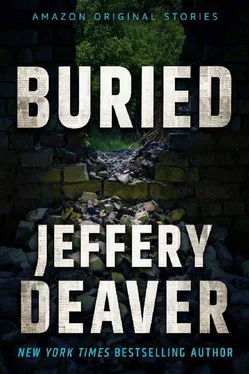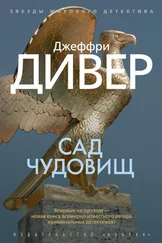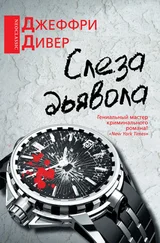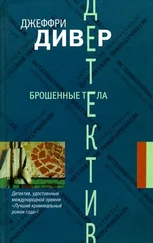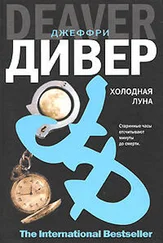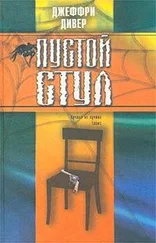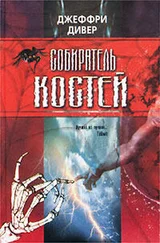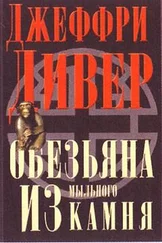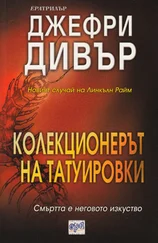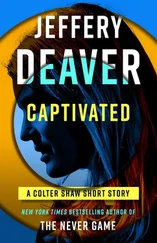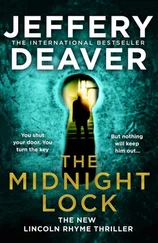As for the kidnapping of Jasper Coyle, Fitz had only to skim recent or planned Examiner stories: the governor’s interview; the coal-company executive’s death, thanks to the timid guardrails on Route 29; the downtown renovation project; the meth and opioid crisis; a domestic murder; and another parental kidnapping in a custody dispute. Some minor police blotter pieces like DUIs, vandalism and low-level drug busts.
He snagged a piece of 8 ½ by 11-inch paper from the printer and charted these stories. Visual aids helped him focus.
Fitz gazed at it for a while. But none of the pieces had the Gravedigger’s signature. Either they involved no crime at all, or known or local perps were the ones involved.
Dead end. Still, though, his reporter’s instinct told him there was more to the kidnapper than what appeared; he couldn’t dismiss the idea of publicity as a motive.
He’d have to think about it.
And think he would.
But not quite yet.
The police scanner crackled, made him jump. “Be advised, all units, we have probable location of Jasper Coyle. Proceed to corner of Thirteenth Street and Arthur Road.”
The backhoes and jackhammers sat idle.
Worried the machinery might entomb Jasper Coyle with brick and stone, the authorities had the rescue workers dig by hand.
Fitz jockeyed for position among the other journalists, print and broadcast, behind the yellow tape barricading off the construction site where an old building was being demolished.
This was an old portion of town, filled with redbrick and limestone buildings dating back at least one hundred years. A grassy park was across the street, with an ancient cannon pointing westward, a direction from which no enemy had ever approached the town of Garner.
City Hall and other administrative offices were nearby, as was police headquarters. A full complement of law enforcers too — city, county, state and fed, all under the calm direction of Special Agent Sandra Trask.
A supervisor called to one enthusiastic pick-axer, “Careful. If he’s down there, we don’t want to knock something down on him.”
The worker shot back, “If he’s down there, he needs fucking air.”
Fitz approached a broadcast reporter he knew, a veteran ABC and NBC reporter now with National Public Radio. Fitz had little use for TV journalism, now that Walter Cronkite and Huntley and Brinkley were gone, but he respected NPR for the depth it brought to stories. He asked the man how they’d found Coyle.
“Well, that’s a story and a half,” the man said, laughing. He explained:
Agent Trask had given a statement about cracking the code. A woman in the Shetland Islands, the United Kingdom, who was “rather addicted to crosswords,” had figured out the limerick.
There once was a man with a car.
Whose trip didn’t get very far.
Not one single mile,
Oh, my what a trial!
He’s trapped somewhere under the bar.
Mrs. Sophie McMillan, eighty-seven, was quoted as saying: “I noticed he said the bar, not a bar. A bar would be like a bar where people drink or a bar like a girder for building. But I thought the bar meant the law. Barristers and solicitors, as we say over here. And then there was the word ‘trial.’ So I decided that that poor bloke was buried under a lawyer’s office or courthouse.”
Investigators had located a courthouse from the early twentieth century, presently being torn down. Nearby a team found footprints that matched those of the Gravedigger and a hose disappearing underground. Rescue excavation began immediately.
Mrs. McMillan had heard about the puzzle on an Australian website devoted to games and puzzles. Fitz supposed that the only way she’d have seen it was because of Dottie Wyandotte.
Potentially, forty, fifty million...
Dust from digging wafted his way. Coughing, lozenge. Coughing, lozenge.
Then, heads turning to the site, the collective sound of human voices rose. No discernible spoken words, just a murmur of an emotional reaction at the discovery of a missing human being. Or a corpse.
Medics ran forward, carrying a stretcher.
A moment later they surfaced, bearing a pale and bloody but very much alive Jasper Coyle.
Fitz wrote and filed the piece about the rescue.
He’d managed to get a short one-on-one with Special Agent Trask and, in a scoop, had also interviewed the limerick solver.
“The trick is to keep an open mind,” the elderly woman had said in her melodious accent. “Don’t start solving the puzzle right away. Let it sit. Sometimes your first impression locks your mind; you can’t get past it.”
Not a bad rule for life, Fitz reflected.
He dug through the drawer and withdrew his bottle of Jack Daniel’s. He found a chipped ceramic mug. On the bottom was dried coffee crust. The restroom and watercooler were inconveniently three minutes away. He poured a slug of the honey-colored liquor in. He sipped.
No harm to the flavor.
The Gravedigger story was by no means finished and he had the motive angle to explore. Not knowing this continued to bug him. Why was the last of the five W s — the questions that every piece of hard news was supposed to answer: who, what, when, where... and why.
But the hour was late; he was tired. He’d continue working from home. He stuffed all the notes and printouts of the Gravedigger case into his leather bag, a gift from Jen forty-three years ago. His birthday. A group of friends and family over. She’d made Guinness beef stew and soda bread, his favorites. They had sung songs until all hours, a challenge because the piano’s middle C and the nearby F were not working. Also, a G in the upper atmosphere made an unearthly sound.
A good night.
A happy night.
Taking another hit of whiskey, he noted a light across the newsroom. It came from a cubicle, occupied, he could tell, because of the moving shadows. Picking up the bottle and mug, he walked across the newsroom and through the glass doors of the ExaminerOnline .
Dottie Wyandotte was leaning forward toward her massive monitor. Why didn’t staring at the busy surface all day make her dizzy? Maybe it did.
Every so often her fingers, with their black-tipped nails, would move in a frenzy on the keyboard.
“What’s one of the most common punctuation mistakes?” he asked.
Her head rose fast, surprised someone was present. She looked up at Fitz. Her face was unsmiling, her expression neutral. She was still angry.
The only thing I don’t need is your condescension...
“Come on,” he rasped. “Give it a shot.” Coughed for several seconds.
She looked at the screen, tapped return and sent something somewhere. “My sister’s five years younger. I don’t think she’s ever apologized in her life, not to me. And she’s got a long list of things to apologize for. What she does is she ignores me for a day or two or three and then calls and says something out of the blue. Completely irrelevant. ‘You hear about the new farmers’ market?’ ‘Jim and I are going to see Hamilton !’ That’s what passes for an apology to her.”
“I’m sorry. Not about your sister. About what I said.”
Now, looking his way. Her eyes still weren’t smiling, but the edge had softened. And quite the edge it had been. Impressive. Like his, when he was confronting a corrupt politician or philandering CEO.
He asked, “You drink whiskey?”
She said nothing for a moment. Then, glancing at the bottle: “Does it have wheat in it?”
“Does it have... what?”
“Wheat. I’m gluten intolerant.”
“Whiskey’s made out of corn.”
Читать дальше
